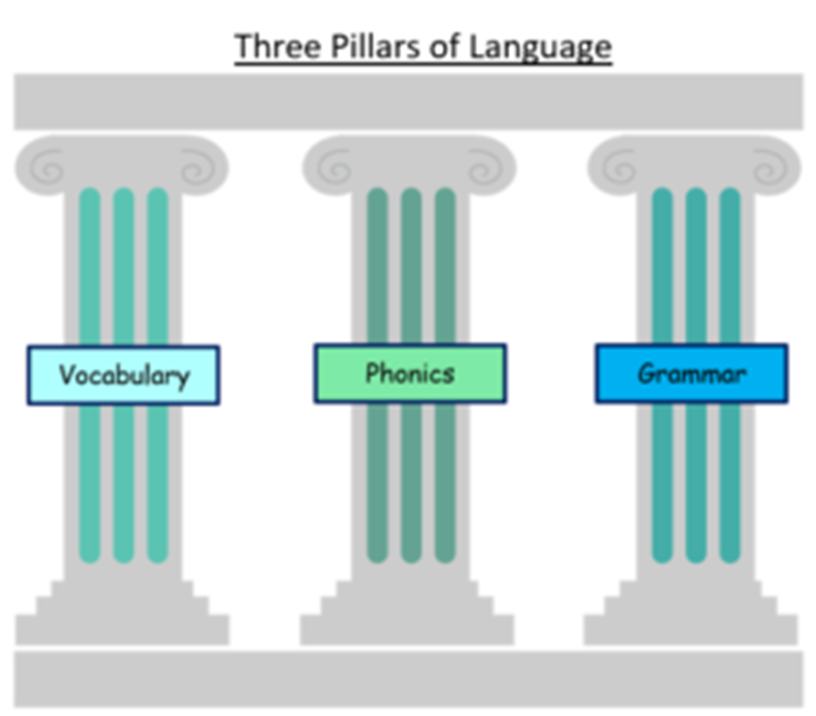French
‘Work Together, Achieve More’
Subject Intent
At Holley Park Academy, it is our vision that languages are for life. The study of a language is seen as an important part of our pupils’ education as languages are part of the cultural richness of our society and the world in which we live and work. Learning French contributes to mutual understanding, a sense of global citizenship and personal fulfilment. Pupils learn to appreciate different countries, cultures, communities and people. The ability to understand and communicate in another language is a lifelong skill for future education (as French is also the language children are taught at our main feeder secondary school) employment and leisure in this country and throughout the world.
Subject Implementation
The national curriculum for languages aims to ensure that all pupils:
-understand and respond to spoken and written language from a variety of authentic sources
-speak with increasing confidence, fluency and spontaneity, finding ways of communicating what they want to say, including through discussion and asking questions, and continually improving the accuracy of their pronunciation and intonation
-can write at varying length, for different purposes and audiences, using the variety of grammatical structures that they have learnt
-discover and develop an appreciation of a range of writing in the language studied.
Using this a starting point, we have utilised the Language Angels Scheme and adapted it to suit our context with the support of a language specialist to ensure we deliver a sequenced, spiral curriculum that builds on prior learning as pupils progress through school. The children have dedicated French teaching for 2 hours a fortnight, delivered by the class teacher.

Phonics
To be able to read, write and speak we need to recognise and understand the phonemes and graphemes of the language. We learn to read and write in English using our Little Wandle phonics scheme in Early Years and Year 1.
When we learn another language, such as French, it is equally as important to learn the new phonemes and graphemes of that language. For example, in French the grapheme ‘r’ has a rolled ‘r’ sound.
Vocabulary
Pupils learn a range of common vocabulary in order to be able to communicate effectively about a range of everyday topics. For example, to be able to describe people, places and things and to be able to ask and answer simple questions. Vocabulary, such as key verbs, size, colours and numbers is revisited throughout KS2 in different contexts in order to secure it in the long-term memory. They will also broaden their vocabulary by using a bilingual dictionary.
Grammar
Pupils are taught to understand and use basic grammatical structures including feminine and masculine forms and the conjugation of high-frequency verbs. Children learn key features and patterns of the language and how to apply these. For instance, they learn that the position of the adjective in French is usually different to that of English (after the noun) and different ways to structure questions. They learn that some words that are capitalised in English are not capitalised in French such as days and months. The level and complexity of the language that children are expected to produce ranges from single words and short phrases in Year 3 to paragraphs in Year 6.
The 3 core pillars of learning are embedded and taught within each of our 13 themes across key stage two, with a different theme covered each term in each year group:
|
|
Autumn |
Spring |
Summer |
|
Year 3 |
La Phonetique
J’aprends le Francais |
Les Animaux |
Les Fruits |
|
Year 4 |
La Date
As-tu un animal? |
Je me présente |
Ma Famille |
|
Year 5 |
Quel temps fait-il? |
Au salon de thé |
Les vêtements |
|
Year 6 |
A L’ecole |
Le Weekend |
Mange et Bouger |
Assessment
Children are assessed on an ongoing basis via a series of ‘Pupil Learning Intention sheets’ which are linked directly to each topic in the scheme of work.
Towards the end of year 6, transition information is sent to the destination secondary schools, to ensure a smooth beginning to children’s Key Stage 3 learning journey.
SEND
Holley Park promotes a curriculum that puts all pupils, regardless of their needs, at the heart of what we do. By building mutual respect, we accept others for their differences believing that everyone is special and everyone has something to offer. Our inclusive and enriching curriculum, written for all children, provides pupils with meaningful and aspirational experiences as well as promoting personal growth for life-long learning. When the curriculum needs adapting, to suit the needs of individual children, appropriate modifications are made by the class teacher with support of the SENDCo and the Curriculum Subject Lead.
Should you wish to know more about the French curriculum at Holley Park Academy, please contact the French Subject Lead via the school office.
